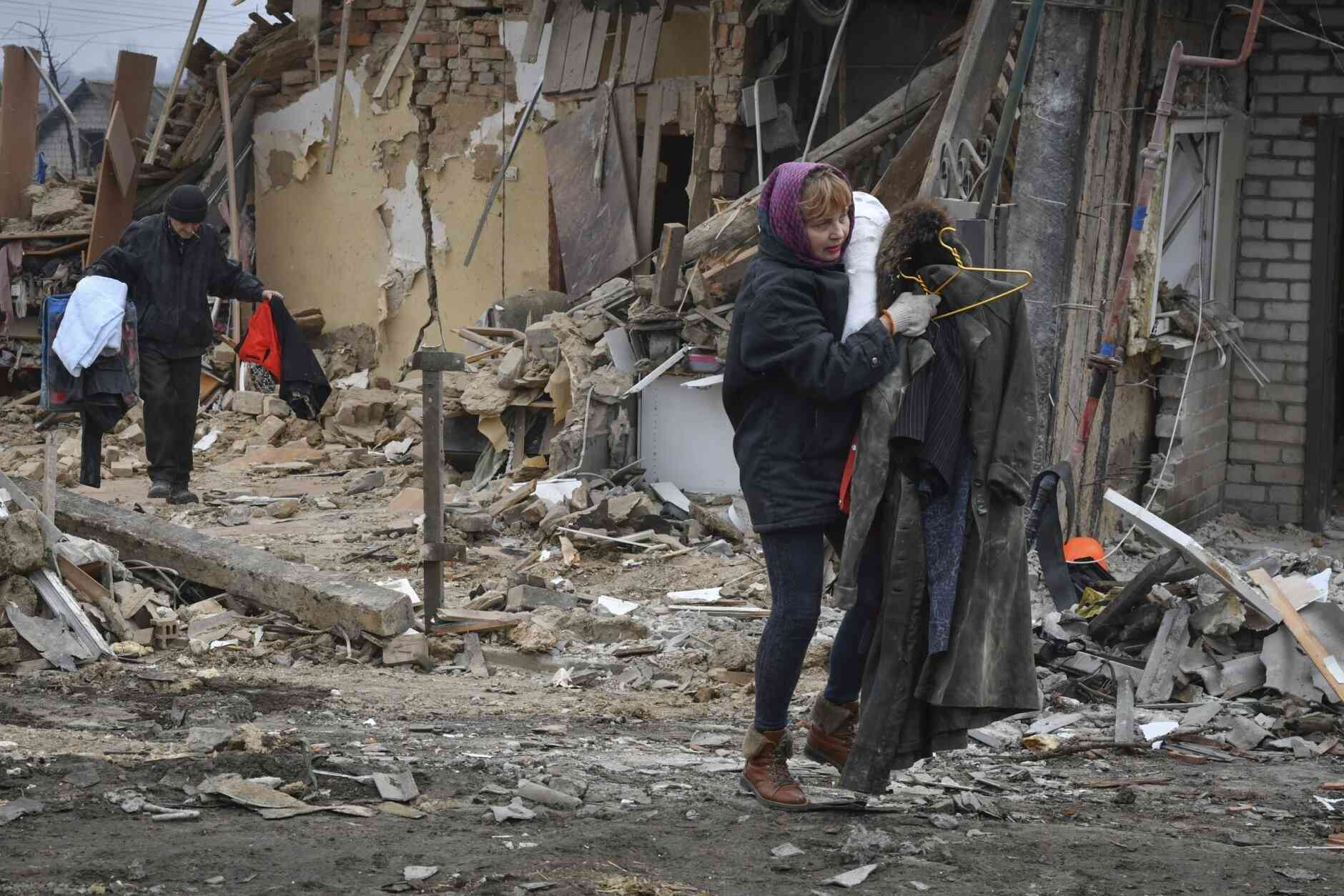
The furious speculation on whether the Ukrainian counter-offensive will succeed has been ongoing for several months already, so the first thing I must tell you is that I don’t know. Nobody knows, not even the Ukrainians.
They know that the big prize is a southward offensive that reaches the Black Sea coast and virtually cuts off all the Russian forces west of there. (The Russians could still get some supplies via Crimea, but not much.)
However, the Russians know that too, and they have been building deep defences all across the southern region since late last year. Moreover, it’s around 90km from the present Ukrainian positions to the coast. That’s a very long way if the Russians stand and fight.
“Some of them will and some of them won’t” is the standard assumption based on the past year’s fighting, which is why the Ukrainians are launching probing attacks almost all the way along the 1 000-km frontline.
Any heavy fighting elsewhere will be designed to force the Russians to commit their reserves early so that they aren’t available to strengthen Russian defences in the south. The Russians won’t easily be suckered into doing that, however, because they know what the Ukrainian strategy must be.
If the Russians commit their reserves to the south big and early, on the other hand, the Ukrainians might decide to switch their main attack to the north instead and leave the south for later. Choices in war are unpredictable, and outcomes even more so.
There is a good chance that the Ukrainians will achieve their highest priority, which is to win back enough territory to secure continuing financial support and weapons supplies from the West. Otherwise, they would be forced to accept a ceasefire that leaves much of their country under Russian occupation.
There is at least an even chance that the Ukrainian army will break through to the south coast and inflict a major defeat on the Russians. However, even that would probably not force the Russian president, Vladimir Putin, to accept defeat and withdraw from Ukraine entirely.
- Male ego is hard to tackle: Wilkerson
- African leaders dying overseas expose cruel deception of independence
- New perspectives: Why Zanu, Zanu PF were successful in the 1970s, 80s and 90s
- SA continues to scramble its future
Keep Reading
There is a small but real possibility that the Russian army might collapse on the battlefield in the event of a major defeat, or that the regime might change in Moscow as part of a domestic power struggle, but neither event would necessarily bring an end to the war.
What remains to be said (but rarely is in the context of a military analysis like the one above) is that this war, like all wars, is a human hunter-gatherer legacy and more broadly a predator evolutionary adaptation that is utterly counter-productive in any technological civilisation.
The Putin regime has behaved very badly and invaded a neighbour who posed no threat, but the military institutions that made such an act possible exist in every country. The social structures and political assumptions that underpin them are as old as civilisation, and while armies are a human innovation, war is much older.
We didn’t invent war; we inherited it. Our branch of the primate family has been living in small groups for a long time, and we probably became predators (like our closest relatives, the chimpanzees) at least three million years ago. Most group-living animal predators are engaged in a permanent low-level war with nearby groups of the same species.
Fights to the death between individual predators are rare, because there is a 50% chance of death in every fight. Make the right submissive gesture and walk away. But rival groups of the same species of predator can and do fight wars: lions, hyenas, chimpanzees — and humans.
It makes evolutionary sense for group-living predators, because the supply of food (prey) sometimes gets scarce. Predators are strongly territorial and killing off members of neighbouring groups means that when the hard times come, your group can overwhelm the neighbours and survive by using their territory too.
Human hunter-gatherers also behaved like this, and they carried these behaviours into their civilisations. The little bands became tribes with imaginary shared ancestors and then millions-strong societies united by “national” identities. The war-bands grew into armies and the weapons got steadily deadlier.
War actually still made economic sense when land was the only source of wealth, but military conquest isn’t even profitable any more. Many people understand that war is obsolete and existentially dangerous in the nuclear era, and there were collective attempts to stop it after both world wars: the League of Nations and the United Nations.
Ukraine’s decision in 1994 to give up the nuclear weapons it inherited from the Soviet Union in return for a Russian promise to respect its frontiers was another of those attempts, and that didn’t work well either. Just another demonstration of how hard it is to escape our past. Nevertheless, we have no choice, but to keep trying.
- Dyer is a London-based independent journalist. His new book is titled The Shortest History of War.






